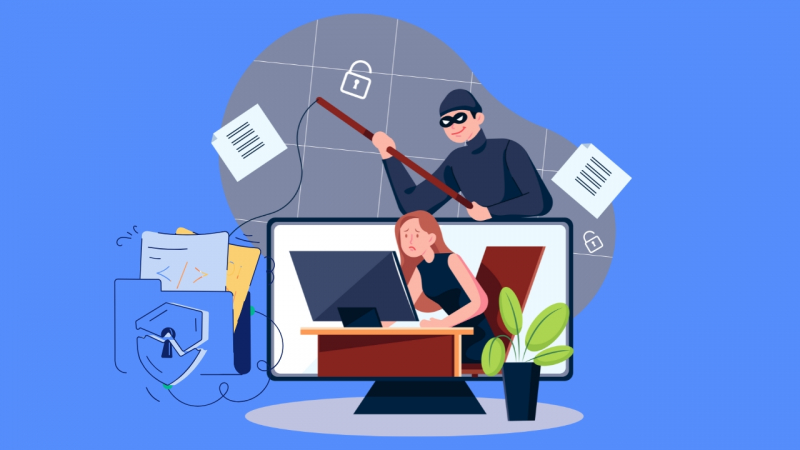We live in a world where our every click, search, and swipe leaves a digital footprint. Companies, governments, and even cybercriminals are eager to capture this data. But how much do we really know about what happens to it once it’s collected? And more importantly, do we understand the risks of living in a data-driven society?
What is Big Data?
Big data refers to extremely large datasets that can be analyzed computationally to reveal patterns, trends, and associations. It’s not just about size—it’s also about speed and variety. Data comes from social media, online shopping, financial transactions, GPS tracking, medical devices, and even smart appliances. Businesses use it to predict consumer behavior, healthcare providers use it to improve patient care, and governments use it to strengthen security systems. But this power comes with risks.
According to IDC, the world generated 97 zettabytes of data in 2022, and this number is expected to double by 2025. That’s the equivalent of streaming Netflix continuously for over 17 billion years. The sheer scale of data raises one question: Who is really in control of all this information?
How is Our Data Collected?
Every time we use social media, shop online, or even walk past a security camera, data is collected. Smartphones track our location. Smartwatches monitor our heart rate. Search engines remember our queries. Even voice assistants like Alexa and Siri are listening, sometimes recording snippets of conversations.
A 2022 Pew Research study found that 81% of Americans feel they have little to no control over the data companies collect about them. Many users are shocked to discover just how much information is being stored. For example, Google Maps maintains a detailed history of every place a user has ever visited, unless manually deleted.
The Privacy Problem
The biggest concern is that individuals rarely give informed consent. Terms and conditions are long and complex, and most of us agree without reading them. Once data is collected, it can be sold, analyzed, or even hacked.
The Cambridge Analytica scandal remains one of the most infamous examples. In 2018, it was revealed that data from 87 million Facebook users had been harvested without their consent and used to influence elections. This incident highlighted just how dangerous unchecked data collection can be, raising concerns about democracy itself.
Another issue is “data permanence.” Once information is stored, it can remain accessible indefinitely. Even if a user deletes their account, companies often retain certain data points for years. This creates a lasting digital identity beyond our control.
Who Controls Our Data?
Tech giants like Google, Amazon, and Meta hold massive amounts of personal data. A 2021 report revealed that Google tracks up to 39 types of personal information per user. This includes everything from location to browsing history, app activity, and even what you say to your smart speakers.
Governments also play a significant role. Surveillance programs collect data under the pretext of national security. The Edward Snowden revelations in 2013 exposed the extent of U.S. government surveillance, showing that millions of citizens’ phone records and internet activities were being monitored.
The rise of data brokers adds another layer of concern. Companies like Acxiom and Experian buy, analyze, and resell personal information to advertisers. In many cases, individuals don’t even know these companies exist, let alone that their personal details are being traded.
Data Breaches and Cybercrime
Data breaches are becoming increasingly common. In 2023 alone, over 353 million people were affected by breaches worldwide. Cybercriminals use stolen data for identity theft, fraud, and blackmail. High-profile cases include:
- Equifax (2017): Exposed sensitive financial data of 147 million people.
- Marriott Hotels (2018): 500 million guests had passport numbers, birthdates, and credit card information compromised.
- Yahoo (2013–2014): The largest known breach, affecting 3 billion accounts.
The financial toll is enormous. According to IBM’s 2023 Cost of a Data Breach Report, the average cost of a data breach is $4.45 million. But the emotional toll on victims—dealing with identity theft or fraud—can be far more devastating.

Big Data and Surveillance Capitalism
The term “surveillance capitalism,” popularized by Harvard professor Shoshana Zuboff, describes how companies profit from tracking and predicting user behavior. Every ad we see, every recommendation we receive, is the result of algorithms trained on personal data. This creates a system where privacy becomes a commodity and individuals lose autonomy.
The personalization of content can also deepen social divides. Algorithms tend to reinforce existing beliefs by showing people more of what they already agree with. This creates echo chambers that fuel political polarization.
Is There a Way Out?
Regulations like the EU’s General Data Protection Regulation (GDPR) and California’s Consumer Privacy Act (CCPA) are steps in the right direction. They give users more control over their data and force companies to be transparent. For example, GDPR requires companies to notify users of breaches within 72 hours and allows individuals to request data deletion under the “right to be forgotten.”
However, enforcement is difficult. Many smaller companies fail to comply fully, and global platforms often operate across jurisdictions with varying laws. Countries like China have their own stringent data regulations, but these are often designed for government control rather than user privacy.
The Future of Data Privacy
Emerging technologies like artificial intelligence and the Internet of Things (IoT) will only intensify privacy concerns. Smart cities, self-driving cars, and connected homes all rely on massive amounts of personal data. Without strict safeguards, the risks will grow exponentially.
Blockchain has been proposed as a potential solution for secure data management. By decentralizing storage and allowing individuals to control access, it could reduce reliance on centralized data collectors. However, scalability and adoption remain major hurdles.
What Can We Do as Individuals?
We may not be able to stop big data collection entirely, but we can take steps to protect ourselves:
- Use strong, unique passwords for every account.
- Enable two-factor authentication wherever possible.
- Limit the personal information shared on social media.
- Regularly review and adjust app permissions.
- Use privacy-focused browsers like Brave or Firefox and search engines like DuckDuckGo.
- Consider using a VPN to mask your location.
- Delete old accounts that are no longer in use.
Even small steps can reduce the amount of data available for companies and hackers to exploit.
Final Thoughts
Big data has the power to improve our lives, from medical breakthroughs to personalized services. But it also threatens our privacy in ways we are only beginning to understand. The question we must ask is: how much are we willing to trade convenience for control?
Protecting our digital selves is no longer optional—it’s essential. As technology evolves, society must push for transparency, accountability, and stronger protections. Otherwise, we risk losing not just our privacy but also our freedom in the digital age.
Post Comment
Be the first to post comment!
Related Articles

What Gamers Teach Us About Reward in Digital Spaces
Sep 10, 2025 . Marketing
The Rise of Foldable Tech: Gimmick or Game Changer?
Sep 9, 2025 . Marketing